HEALTH & WELLNESS PROGRAMS
MOTORSPORTS THERAPY
Our first flagship program which started as just getting out and getting into racing, later developed into a tremendous fun, and therapeutic endeavor. Backed by medical professionals, the pursuit of therapy for our nation’s veterans has seen many variants along the way. The most prevalent, however, is always the institutional and plain white doctor’s office followed by prescription meds and a very cookie-cutter approach to wellness that leaves the veterans lost and in many cases… in a worse place than where they started. Here, we have combined the elements of what we all have been trained and bred to respect (community, mission, purpose) into an environment that allows individual latitude for self-awareness and reflection.
THE MOTORSPORTS THERAPY
PROGRAM
Racing for Heroes has a number of elements within the overall Health and Wellness Program. We approach Health and Wellness from a holistic perspective to allow veterans to heal and rehabilitate to the best of their ability in their own tailored way.
Motorsports Therapy is an approach that brings veterans into an environment that re-introduces the familiarity of community, establishes a mission, and allows the veteran to attach the sense of purpose they develop. Racing is simply an exciting by-product of the approach.
THE NEED
Post-Traumatic Stress Disorder (PTSD) plays a major role in the challenges that many veterans of the military experience. Numerous studies have established the frequent occurrence of PTSD among individuals exposed to traumas including wars, disasters, terrorist attacks, accidents, and interpersonal violence. The high prevalence of PTSD among deployed servicemen of current wars (e.g., 24% of US reservists of the Iraq and Afghanistan campaigns, one year after homecoming) continues to be worrisome. Many veterans that RFH serves have experienced Chronic PTSD. Chronic PTSD is often much longer: epidemiological studies have shown that the average duration of PTSD episodes is more than seven years. This longer form of PTSD is often comorbid with other disorders, and difficult to treat.
The US Institute of Medicine (IOM) found that the scientific evidence on treatment modalities for PTSD was “below the level of certainty that would be desired for such a common and serious disorder”. The IOM has identified but one treatment component of CBT – Exposure Therapy – to have convincing evidence behind it. The evidence for other treatment modalities, including pharmacological therapies has been found to be inadequate. There are many different types of Exposure Therapy that work for different veterans.
This is where RFH is particularly focused as we have developed the Motorsports Therapy Program to allow veterans to accomplish exposure therapy in a controlled environment that parallels the adrenaline rush and focus that they had in uniform, without the same level of risk to life and limb. Further, we have other programs, as show in Appendix A, that is looking to reduce veterans’ reliance upon pharmacological therapies by enhancing health and wellness and community building.

MOTORSPORTS THERAPY
RUNDOWN
The Motorsports Therapy Program (MTP) is our flagship program and the one which integrates with all of our other programs. As briefly discussed earlier, this program was borne out of Mike Evock’s experience when he had just transitioned from the military and was profoundly depressed. He was not sleeping and was having dark thoughts that scared him and his family. What Mike found was that by going back to something he did in his youth, racing, he was able to regain the adrenaline rush and focus that he had when he was operational in the Special Forces. He found that through this intensive experience, he was exposed to a level of excitement and engagement that closely paralleled his uniformed experience. He then was able to start to sleep at night and find solace. But it was more than that. He was now engaging with a community of drivers, many of whom were veterans, to build cars and keep them on the track. In essence, recreating the bonds of camaraderie that he had in the Green Berets. It was from this personal experience that he started the MTP.
Today the MTP program has multiple discrete elements that veterans can partake in:
Driving Experience for groups of veterans by hosting them for a three-day course of study at our Headquarters at Virginia International Raceway.
- Sponsoring Veterans to enable them to build and drive their own cars. This element is at no cost to the veteran from RFH, as RFH provides some materials, access to donated materials, and funds, but the drivers must put in sweat equity and their own resources.
- Building teams of veterans to work on a veteran’s car. This builds a sense of community and is critical to enhancing the safety net for veterans living in depression. This element is at no cost to the veteran.
- Training veterans on race car fabrication in our shop in Alton VA. This element is at no cost, including housing, to the veteran.
- Opportunities to engage with the community for veteran drivers. This is critical to helping our fellow warriors raise awareness of the issues facing the veteran community. It also includes interview opportunities on our nationally distributed radio / TV show Racing for Heroes Radio.
